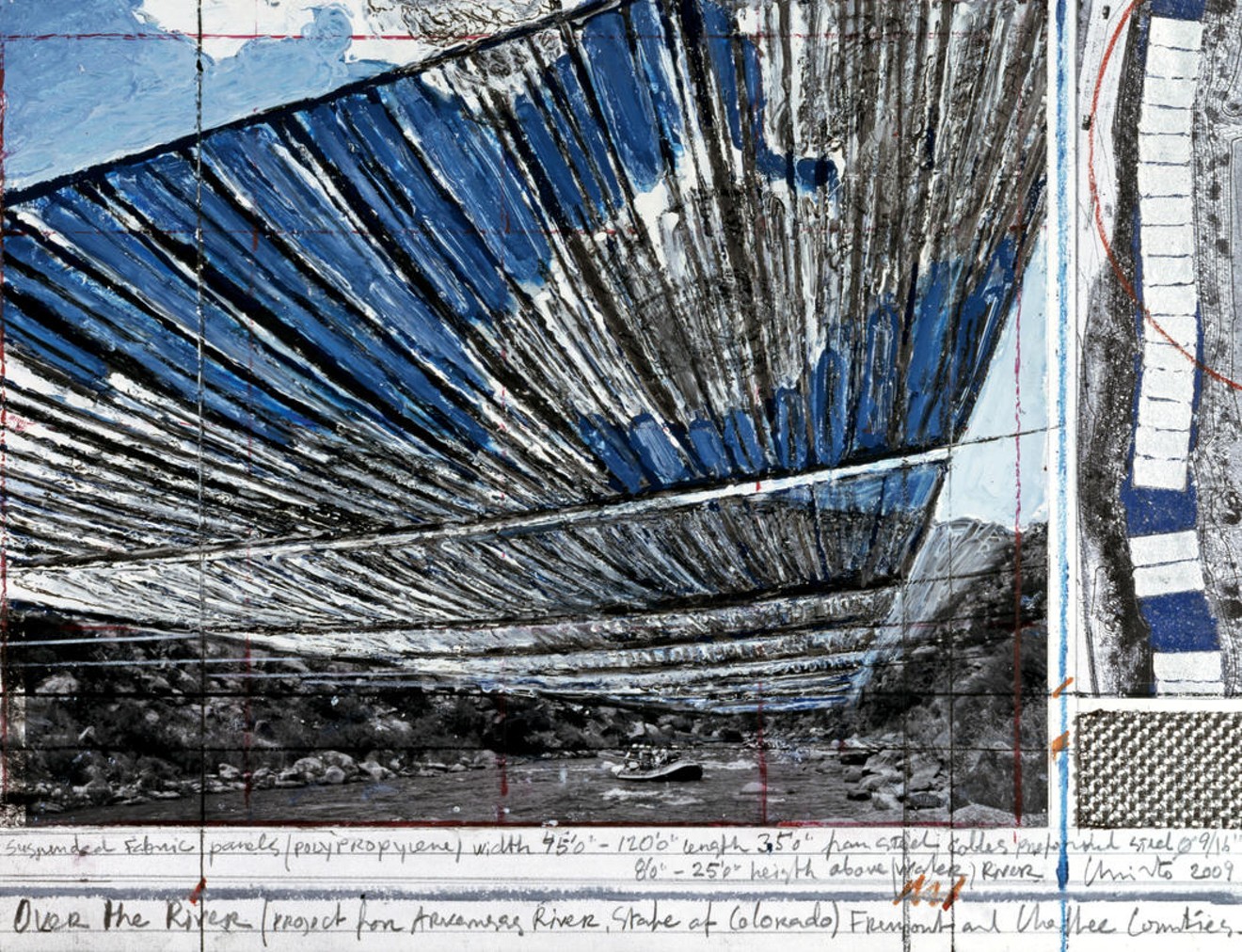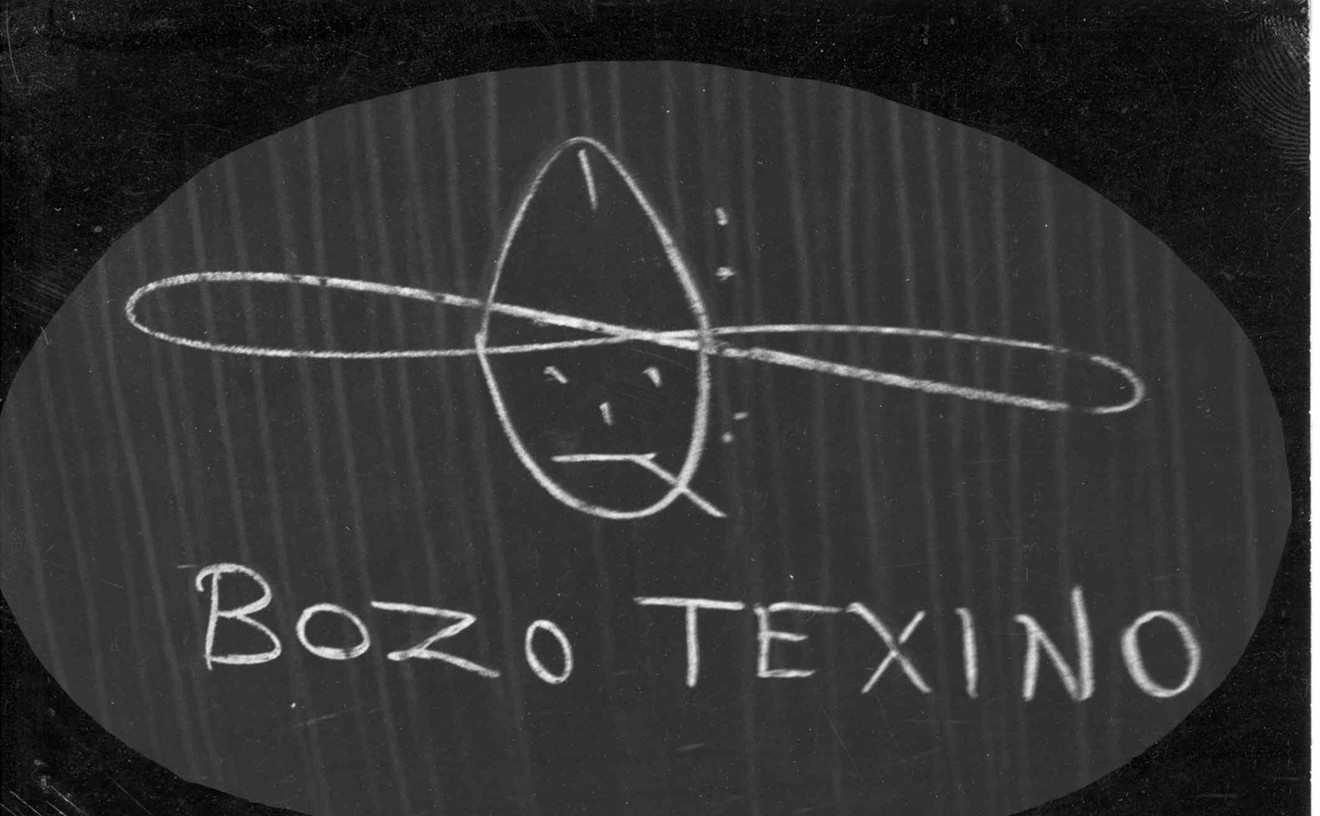His office sent out the following statement:
After pursuing Over the River, Project for the Arkansas River, State of Colorado, for 20 years and going through 5 years of legal arguments, I no longer wish to wait on the outcome.In 1992, Christo and his late wife, Jeanne-Claude, envisioned covering a river with silvery cloth that would be suspended above it in the manner of a meandering canopy. Four years later, they chose the Arkansas River between Cañon City and Salida as the site.
Ihave decided to devote all of my energy, time and resources into the realization of The Mastaba, Project for Abu Dhabi, United Arab Emirates, which Jeanne-Claude and I conceived 40 years ago. I have been fortunate to work with many dedicated Colorado residents as well as Federal and State agencies who have been a part of Over The River. I am grateful to everyone who was part of this journey
This stretch of the Arkansas was seen as ideal for the project: It had steep banks, to which the fabric could be anchored; it also had a road that followed its course, which would allow viewers to drive by the piece during its extremely limited two-week run. Christo envisioned the canopies as shimmering and reflective when seen from the road, but transparent when seen from below by rafters and hikers. After the project concluded, these canopies were to be dismantled and any possible negative environmental impacts addressed.
Many in the art world, myself included, were excited to see Christo returning to Colorado; he'd created one of his earliest installations in this state, 1972's “Valley Curtain.” In that world-famous piece, an orange curtain was stretched between the two sides of Rifle Gap, on the Western Slope.
By 2009, Christo, Jeanne-Claude and their team had secured all local, state and federal permits to go forward with “Over the River” and had even executed a federal Environmental Impact Statement, the first such report ever created for a work of art. Sadly, that same year, Jeanne-Claude died. But Christo pressed on.
In 2012, an ad hoc group opposed to the project, Rags Over the Arkansas River (ROAR), filed suits against the Colorado Department of Parks in Colorado state court and the Bureau of Land Management in U.S. federal court; both departments had greenlighted the project. And both lawsuits were resolved in favor of Christo.
By last year, it seemed as though Christo had cleared every legal hurdle to realize “Over the River” — though there were still some loose ends to tie up — and he had already spent some $6 million on it. So why quit now?
The sudden cancellation of the project is incredibly shocking. While Christo is in his early eighties and the projected completion of "Over the River” was still at least five years off, his enthusiasm seemed undiminished. And then Donald Trump was elected president, and the land where Christo wanted to produce the piece fell under his domain.
“The decision speaks for itself,” Christo told the New York Times about the project's cancellation. “My decision process was that, like many others, I never believed that Trump would be elected.”
That “Over the River” will never happen is a major blow to the artistic and cultural life of Colorado.












